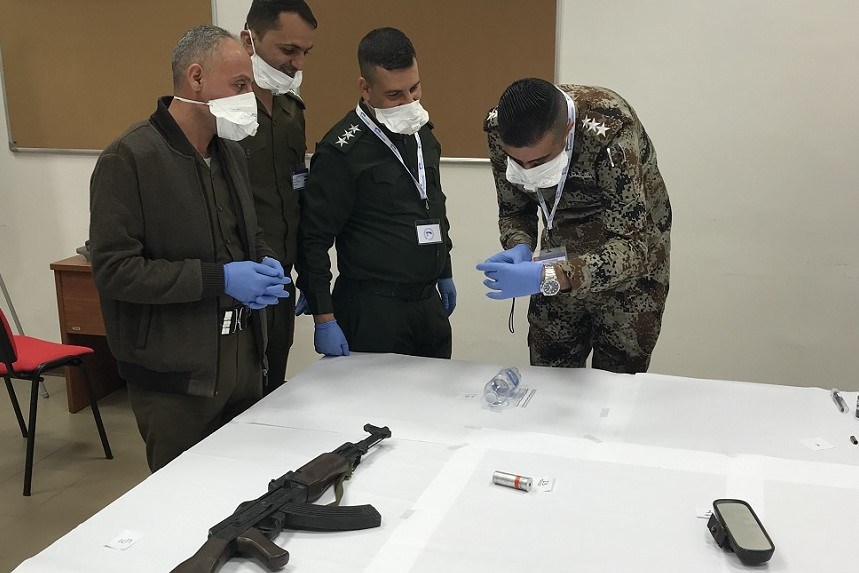Battlefield evidence collected from a conflict area is of increasing importance in bringing those suspected of terrorism and international crimes to justice, according to a memorandum produced this week by Eurojust, the EU Agency for Criminal Justice Cooperation.
The term ‘battlefield evidence’ has different legal definitions in different countries, but in general refers to anything gathered on the spot in a conflict area, whether by judicial or military authorities, local authorities, UN or NGOs.
“The evidence consists of both electronic data and physical items, such as mobile phone data, credit cards,” Eurojust explains.
“Other examples are situational reports, letters describing potential terrorist plots, witness statements and administrative documents such as a payroll roster, a list of patients in a hospital, or a will.”
Battlefield evidence (also referred to as ‘battlefield information’) can, like other types of evidence, be used in criminal proceedings. There is however a particular problem regarding admissibility – proving the provenance of the evidence, and safeguarding a chain of custody. In other words, proving where it came from and who has had access along the way.
One problem is that many countries do not allow their military forces to take on any judicial role, and yet it is the military who are more likely to come up with battlefield information. There is therefore a need to have the judicial authorities become involved as early as possible.
Another issue is the evidence gathered on the basis of intelligence service activities. In order to be admitted in court, such intelligence should be declassified, the memorandum suggests, and also be corroborated by other available evidence.
Among the concluding remarks is an expression of Eurojust’s continued engagement in this field.
“Eurojust will continue to facilitate exchanges of national experiences in terrorism and core international crimes cases and is committed to continued collaboration with Europol on these topics,” the memorandum states.
“Eurojust will also seek to continue its cooperation with the US authorities on battlefield information in a joint effort to enhance the use of such information as evidence in criminal proceedings.”
Alan Hope
The Brussels Times

